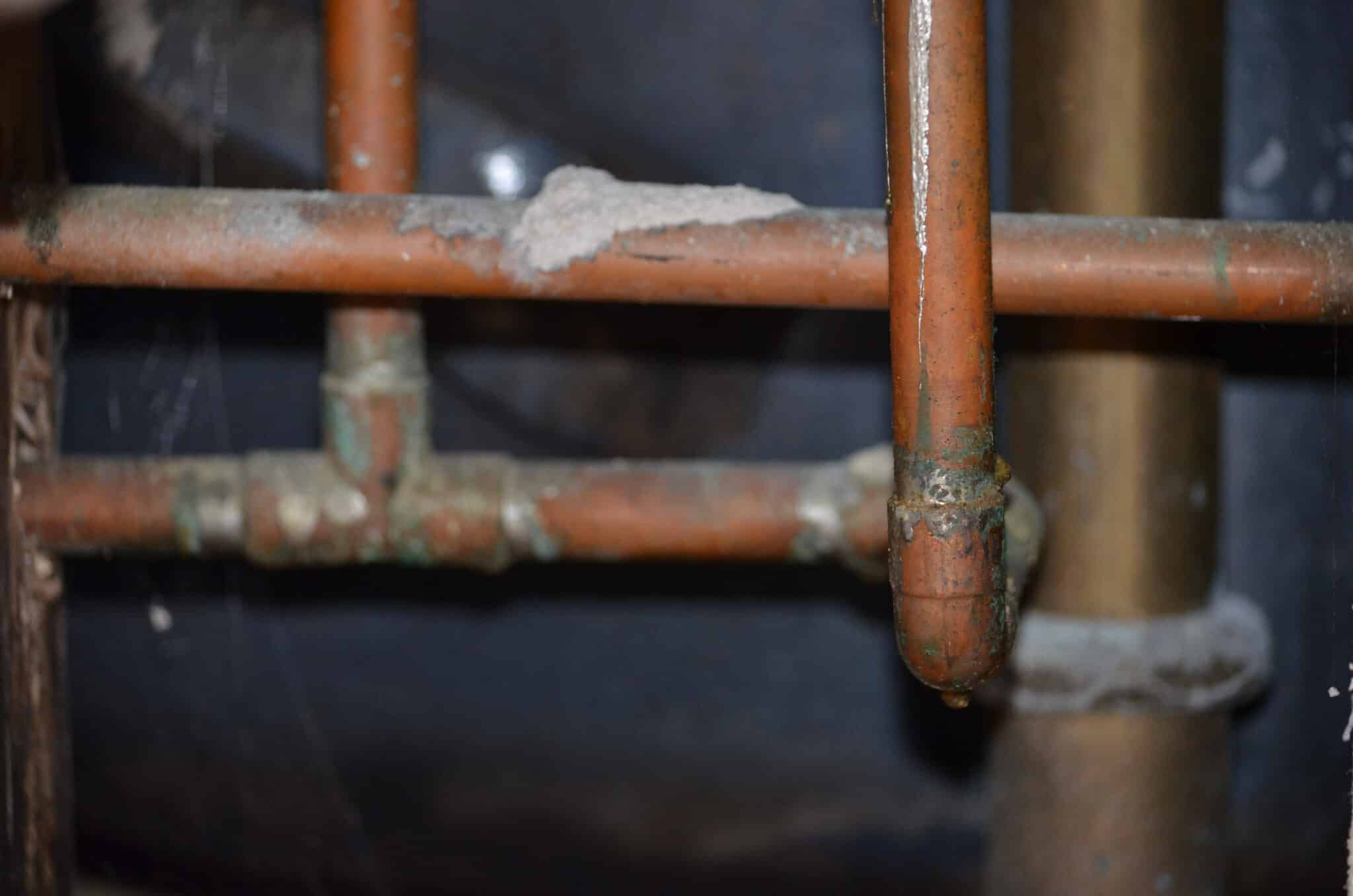Soil pH fluctuations, though seemingly minor, play a crucial role in the health of our plumbing systems. After a storm, the altered pH levels can make the soil more corrosive to the metals commonly used in pipes. This is especially concerning in regions prone to heavy rainfall, such as Nashville, TN. Understanding this phenomenon is crucial for maintaining the longevity of our plumbing systems and preventing unexpected failures.
In Maryville, TN, and similar locales, the composition of local soil can naturally buffer or exacerbate these pH changes. The soil’s ability to neutralize added acidity or alkalinity influences how aggressive these fluctuations are toward underground pipes. Awareness and monitoring of soil pH post-storm can be a key strategy in safeguarding our homes against the silent threat of corrosion and leaks.
Addressing the issue of soil pH fluctuations requires a proactive approach, including regular inspections and maintenance from professionals like My Professional Plumber. By staying informed about the conditions that affect our plumbing, homeowners can avoid costly repairs and ensure the longevity of their systems. As we delve deeper into the topic, it becomes clear that the impact of soil pH on plumbing is an important consideration for maintaining a safe and functional home environment.
Understanding Soil pH Fluctuations After Heavy Rains
Heavy rains can significantly alter the environment beneath our feet, leading to soil pH fluctuations that pose risks to plumbing systems. In Nashville, TN, these changes can be particularly pronounced, affecting the durability of underground pipes and fittings. The soil becomes more acidic or alkaline, depending on the nature of the rainfall and the existing soil composition. This shift in pH can cause metals to corrode faster, threatening the integrity of our plumbing infrastructure.
Understanding the science behind these fluctuations helps homeowners and professionals alike in mitigating potential damage. After a storm, the soil around our homes may no longer offer the same protective environment for pipes. Instead, the altered pH levels can aggressively wear down the materials, leading to leaks and failures. It’s crucial, therefore, to monitor these changes and take preventive steps to protect our plumbing systems.
In Maryville, TN, the natural composition of the soil can either buffer or worsen the impact of soil pH fluctuations. Some soils have the capacity to neutralize changes in acidity or alkalinity, offering a natural defense against corrosion. However, not all soils possess this protective quality, making some areas more vulnerable to the damaging effects of pH changes. Awareness of the local soil characteristics can guide homeowners in taking appropriate measures to safeguard their plumbing.
Proactive measures, including regular inspections and maintenance, are essential in preventing the adverse effects of soil pH fluctuations. Homeowners should consider consulting with plumbing professionals to assess the vulnerability of their systems to these changes. By understanding the risks and taking timely action, we can ensure the longevity and reliability of our plumbing infrastructure, keeping our homes safe and functional. Engaging with experts like My Professional Plumber offers a strategic advantage in managing these underground challenges effectively.

The Chemistry of Soil Acidity and Metal Corrosion
Understanding the chemistry behind soil acidity and how it leads to metal corrosion is vital for homeowners. When soil pH drops, becoming more acidic, it can attack the metal in pipes, causing them to weaken and eventually leak. This is because acidic conditions accelerate the oxidation process of metals, a primary cause of corrosion. Keeping an eye on soil pH fluctuations after heavy rains can help in predicting and preventing such damage.
In Nashville, TN, the local soil composition may influence how severe this corrosion can be. If the soil is naturally alkaline, it might offer some protection against acidity increases. However, not all soils have this buffering capacity, making some plumbing systems more susceptible to damage from pH changes. Homeowners should be aware of their local soil characteristics to better protect their underground pipes.
Regular soil testing can be a proactive measure to gauge the risk of corrosion to plumbing systems. By understanding the current pH level of the soil, homeowners can take steps to mitigate potential damage before it becomes a costly repair. This might include adjusting the soil’s pH or consulting with professionals to assess the need for protective barriers around pipes.
Professionals like My Professional Plumber play a crucial role in managing the risks associated with soil pH fluctuations. They can offer tailored solutions based on the specific conditions of your property in Maryville, TN, or elsewhere. With their expertise, homeowners can ensure their plumbing systems are safeguarded against the hidden dangers of post-storm soil acidity, maintaining the integrity and functionality of their infrastructure.
How Soil pH Fluctuations Impact Pipe Fittings
Soil pH fluctuations after heavy rains can significantly impact the durability of pipe fittings, a concern that homeowners should not overlook. In Nashville, TN, the soil’s reaction to these changes can directly affect the integrity of plumbing systems buried underground. By understanding this correlation, individuals can take preemptive steps to protect their property. Engaging with knowledgeable professionals can offer insights into how best to manage these environmental challenges.
The role of soil pH in the deterioration of pipe materials is a complex interaction that requires attention and understanding. When the soil becomes more acidic, it can hasten the corrosion process, leading to leaks and potential failures in the plumbing system. This is why regular monitoring of soil conditions, particularly after storms, is crucial. It allows for early detection and mitigation of risks associated with pH-induced corrosion.
In Maryville, TN, the natural soil composition can either mitigate or exacerbate the effects of acid rain on plumbing. Not all soils have the same buffering capacity, making some areas more prone to the negative impacts of soil pH fluctuations. Homeowners in such regions should consider consulting with plumbing experts to assess the vulnerability of their infrastructure. Taking proactive measures can significantly reduce the risk of costly repairs down the line.
Professionals like My Professional Plumber are equipped to handle the challenges posed by fluctuating soil pH levels. They can provide tailored solutions that enhance the resilience of pipe fittings against corrosive environments. By leveraging their expertise, homeowners can ensure the longevity and reliability of their plumbing systems. Staying informed and proactive is key to safeguarding one’s home against the unseen threats posed by soil pH fluctuations.
The Role of Rainwater in Altering Soil pH Levels
Rainwater plays a pivotal role in altering soil pH levels, especially after heavy storms. This natural process can lead to significant shifts in the ground’s acidity or alkalinity, directly impacting the health of underground plumbing systems. Homeowners in Nashville, TN, must be mindful of these changes, as they can accelerate the corrosion of pipes and fittings. By staying alert to the effects of rainwater, individuals can take timely measures to protect their plumbing infrastructure.
Understanding the dynamics between rainwater and soil pH is crucial for maintaining the integrity of underground pipes. As rainwater seeps into the soil, it can dissolve and mobilize various minerals, potentially leading to more acidic conditions. This environment can be harsh on metal pipes, causing them to weaken over time. Proactive monitoring and management of soil pH levels post-rain can help mitigate these risks, ensuring a longer lifespan for plumbing systems.
In Maryville, TN, the local soil composition can influence how rainwater affects pH levels. Some soils have natural properties that buffer against drastic pH changes, offering some protection to buried pipes. However, not all areas are as fortunate, making it important for homeowners to understand their specific soil characteristics. Armed with this knowledge, they can better prepare for and respond to the challenges posed by soil pH fluctuations.
Professionals like My Professional Plumber offer invaluable assistance in navigating the complexities of soil pH management. They have the expertise to assess the potential impact of rainwater on soil acidity and provide tailored solutions to protect plumbing systems. Engaging with such experts can be a smart strategy for homeowners looking to safeguard their property against the unseen threats of fluctuating soil pH levels, ensuring peace of mind and the durability of their plumbing infrastructure.

Preventive Measures to Protect Underground Pipes
To protect underground pipes from the adverse effects of soil pH fluctuations, homeowners can take several preventive measures. Regular soil testing is a proactive step that allows for the early identification of potential acidity or alkalinity changes. By understanding the current state of the soil, individuals can implement strategies to neutralize harmful pH levels before they affect plumbing systems. This approach is particularly beneficial in Nashville, TN, where soil compositions can vary widely.
Another effective method is the installation of protective barriers around pipes. These barriers can shield pipes from direct contact with corrosive soils, significantly reducing the risk of deterioration. Homeowners might consider materials like high-density polyethylene (HDPE) for their durability and resistance to chemical attacks. In Maryville, TN, consulting with plumbing professionals can help determine the best barrier options based on local soil characteristics.
Adjusting landscaping practices can also mitigate the impact of soil pH fluctuations on underground plumbing. Ensuring proper drainage around the home can prevent water from pooling and seeping into the soil, where it can alter pH levels. Planting vegetation that helps maintain soil stability and absorbs excess moisture can be a natural and effective solution. This strategy not only protects pipes but also enhances the overall health of the yard.
Finally, establishing a routine inspection and maintenance schedule with a trusted plumbing service is crucial. Regular check-ups can catch early signs of pipe wear or damage, allowing for timely repairs or adjustments. Professionals have the tools and expertise to assess the impact of soil pH fluctuations and recommend specific preventive measures. Engaging with experts ensures that homeowners in both Nashville and Maryville, TN, can maintain the integrity of their underground plumbing systems against the challenges posed by changing soil conditions.
Case Studies: Soil pH Fluctuations and Plumbing Failures
Exploring real-life scenarios, we find that soil pH fluctuations have led to significant plumbing failures in various homes. In Nashville, TN, a household experienced unexpected leaks due to the rapid deterioration of copper pipes. This incident was traced back to a sudden drop in soil pH following a prolonged period of heavy rainfall. The acidic conditions expedited the corrosion process, highlighting the critical impact of soil acidity on plumbing integrity.
In another case, a family in Maryville, TN, faced a costly repair when their sewer lines failed. Investigation revealed that alkaline soil pH fluctuations had compromised the sealants used in pipe joints. The weakened seals allowed for leaks and eventual system failure, underscoring the importance of monitoring soil pH levels to prevent plumbing issues.
These examples demonstrate the necessity of proactive measures against the effects of soil pH fluctuations. Homeowners who regularly test their soil and consult with professionals can identify risks early. By understanding the specific threats posed by their local soil conditions, they can implement targeted solutions to protect their plumbing systems.
Ultimately, these case studies serve as a reminder of the unseen dangers lurking below our feet. Regular engagement with plumbing experts and a commitment to preventative maintenance can shield homes from the destructive power of soil pH fluctuations. By staying informed and proactive, homeowners can ensure the longevity and reliability of their underground plumbing infrastructure, safeguarding their property against potential failures.
Monitoring and Adjusting Soil pH for Pipe Longevity
Monitoring and adjusting soil pH levels is a critical step in ensuring the longevity of underground plumbing systems. In Nashville, TN, residents can take proactive measures by regularly testing the soil around their homes. This allows them to identify any significant shifts in pH levels that could pose a threat to their pipes. By staying ahead of these changes, homeowners can take timely action to mitigate potential damage.
Adjusting the soil’s pH may require the addition of specific amendments to neutralize harmful levels of acidity or alkalinity. In Maryville, TN, for example, incorporating lime can help raise the pH of overly acidic soil, protecting metal pipes from corrosion. Conversely, adding sulfur can lower the pH in alkaline soils, preventing damage to pipe seals and fittings. These adjustments can significantly extend the life of plumbing systems by creating a more stable underground environment.
Collaborating with plumbing professionals offers homeowners tailored solutions based on their unique soil conditions. Experts can recommend the most effective amendments and application methods to address soil pH fluctuations. They can also provide guidance on how often soil testing should be conducted, ensuring that any adjustments made are both timely and effective. This expert advice is invaluable in maintaining the health of underground plumbing.
Ultimately, the goal is to establish a routine that safeguards plumbing infrastructure from the unpredictable effects of soil pH fluctuations. By monitoring and adjusting soil pH as needed, homeowners can prevent the premature deterioration of pipes and fittings. This proactive approach not only protects the home’s plumbing but also contributes to the overall well-being of the property, ensuring peace of mind for residents in both Nashville and Maryville, TN.
Professional Solutions to Mitigate Soil-Induced Corrosion
Understanding the intricate relationship between soil pH fluctuations and underground plumbing systems is crucial for homeowners. In Nashville, TN, the expertise of professional plumbers becomes invaluable in combating the corrosive effects of these fluctuations. These experts employ advanced techniques and materials to enhance the resilience of pipes and fittings against acidic or alkaline conditions. By doing so, they significantly reduce the risk of corrosion and extend the lifespan of plumbing infrastructure.
In Maryville, TN, professional plumbers often recommend the use of corrosion-resistant materials as a preventive measure. This approach ensures that new installations or replacements can better withstand the harsh underground environment. Additionally, they might suggest the installation of protective barriers or coatings that further shield pipes from the damaging effects of soil acidity or alkalinity. These solutions are tailored to the specific needs and soil conditions of each property, ensuring optimal protection.
Regular maintenance and inspections play a pivotal role in mitigating the impact of soil pH fluctuations. Professionals utilize specialized equipment to monitor the condition of underground pipes and identify early signs of corrosion. This proactive approach allows for timely interventions, preventing minor issues from escalating into major repairs. Homeowners benefit from the peace of mind that comes with knowing their plumbing system is under constant surveillance by experts.
Collaborating with a professional plumbing service offers a comprehensive strategy to combat soil-induced corrosion. These experts not only provide immediate solutions but also guide homeowners in maintaining a stable soil pH level around their property. With their support, residents in Nashville and Maryville, TN, can effectively manage the risks associated with soil pH fluctuations. This partnership ensures the longevity and reliability of underground plumbing systems, safeguarding homes against potential failures.
Frequently Asked Questions
How do heavy rains affect soil pH?
Heavy rains can lead to significant soil pH fluctuations. This happens as rainwater mixes with different substances in the soil. As a result, the soil’s acidity or alkalinity may change. These changes can affect underground pipes and fittings over time.
What causes soil pH fluctuations after rain?
Soil pH fluctuations after rain stem from several factors. Rainwater dissolves and carries different chemicals from the atmosphere into the soil. This process alters the soil’s natural acidity or alkalinity. Over time, these changes can significantly impact the condition of underground pipes and fittings.
Can rain impact underground pipes?
Rain can indeed affect underground pipes. As soil pH shifts, it can speed up the wear on metal and seal materials. This process may lead to leaks or damage over time. Keeping an eye on these changes helps in maintaining plumbing integrity.
How do soil pH fluctuations dissolve pipe fittings?
Soil pH fluctuations can weaken pipe fittings over time. Changes in soil acidity or alkalinity corrode metal parts and degrade seals. This process exposes pipes to potential leaks and failures. Regular monitoring and maintenance can mitigate these risks, ensuring plumbing systems remain robust.
Are certain pipe materials more resistant to soil changes?
Yes, some pipe materials better withstand soil changes. For instance, plastic and PVC pipes are less prone to corrosion from soil pH fluctuations. In contrast, metal pipes, like iron and copper, are more susceptible to damage. Choosing the right material can significantly reduce repair needs over time.













